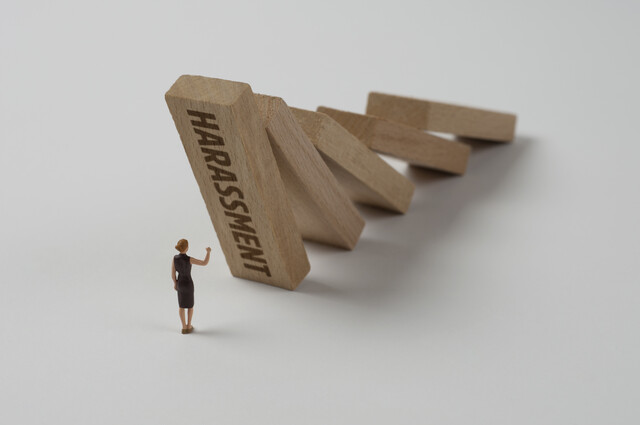Introduction
It may seem as though this is repeated a lot, but it is an important piece of knowledge to reiterate: Anger is a completely normal emotional feeling provoked by certain experiences, events, or perceived unmet expectations. It is typically a person's response to feeling angry that gets out of control, not the feeling itself.
Learning to control your anger, and learning how to have a healthy habit of expressing your anger in a positive, effective way is a good thing to know. This article will explore why it is difficult for some people to express anger, healthy ways to express your anger, the importance of forgiveness, and tips for handling anger.
Repressing Anger
Repressing anger (denying or ignoring your feelings and the things that cause them) can have damaging affects. Not only do you not deal with whatever is causing you to feel angry, but you turn the emotion inward on yourself. This inward turn of your emotion can cause physical and mental issues: stress, high blood pressure, indigestion, and other physical ailments. While the type of person who explodes at every little frustration is one extreme of the anger control spectrum, the type of person who represses all outward signs of feeling anger can be considered the other. It is important to find ways to express yourself � calmly and effectively � when you are angry.
Healthy Ways to Express Anger
Your response to anger is most likely one you learned. If you saw your parents throwing things, screaming, slamming things down, or withdrawing, you may have subconsciously picked up on the behavior as a way to deal with your own anger. Perhaps you saw your mother or father withdraw and not express his or her anger. Maybe you were even the target of unresolved anger.
Anger management is a tool you can use. Anger management is all about learning how to express your anger in a healthy way. It is not about trying to prevent you from expressing anger, and it is not about vilifying anger at all. Anger management is about learning how to recognize anger, what causes it, and how to express it.
As you learn how to manage your own anger, you will be able to teach your children better anger management practices. The younger your children are when they learn how to express their anger constructively, the more successful they will be in managing anger throughout their lives.Healthy expression starts with knowing that you are angry by recognizing the physical and mental cues to your anger. It may seem easy, but we so often mask our real feelings, it is not always that easy to recognize.
It is ok and important to acknowledge your angry feelings. It is important to say � out loud or to yourself, "I feel angry." It is important to be able to recognize your anger, own it, and express it. Expressing your anger effectively does not mean getting out of your car in the middle of traffic and punching the guy who cut you off. Expressing anger is more about finding an appropriate outlet for your emotions, whether that's writing in a journal, getting more physical exercise, or talking to someone.
Seneca suggests that we not speak until we stop to think about what the exact source of irritation is. He also encourages giving people the benefit of the doubt: Wait to determine whether or not they were truly intending to hurt you, be empathetic toward the person by trying to understand why he or she would behave the way they did, and recognize whether or not you had any part or responsibility in what happened. Seneca also recommends that you should not react quickly.
Most psychologists and philosophers will agree that the process of controlling anger is something that should begin when you are a child, but it is never too late to change the nature of the way you think.
The Power of Forgiveness
Sometimes we get angry about a perceived injury. Someone says or does something that hurts us, and we become angry. Rather than dealing with, or letting go of that anger, we hold on to it. In some cases, we even feed it and stoke the anger like we might stoke a fire.
Learning to forgive others can be a powerful tool in diffusing your own anger. Holding on to your anger does not actually hurt the other person nearly as much as it hurts you to hold on to it. It is also important to remember that forgiveness does not mean that you are approving of what the other person did � far from it! In fact, forgiveness is a way that you can acknowledge � to yourself as much as anyone else � how you have been injured by the other person, while still being able to move on from the experience and walk away from it.
You may feel the need to forgive someone who has hurt you. If you are dwelling on something or regretting the loss of a relationship, or if you are angry or depressed about it, it may be time to reach out and forgive. Realize that forgiving someone is not a guarantee that your relationship will be reconciled -- and do not give your forgiveness just to try to make something like that happen. Forgiving someone should be all about you releasing the pain you have been holding on to and not as much about the person you are forgiving.
Talk about a double-whammy! Anger can cause you to feel stress, and having stress in your life can cause you to not handle your anger as well. In fact, high levels of stress can cause so many negative effects that it is an important focus, even without the need for anger management.
Have you ever noticed that when you are experiencing stressful events in your life that you over-react to things that make you angry more often, and that you get angry at things that perhaps wouldn't typically make you angry at all? You yell at the kids more; you fight with your spouse more. When you are feeling stressed out, you may even get more angry when driving, working, or dealing with strangers. While stress is something we all experience, handling stress effectively can help you manage your anger as well.
- Learn to recognize your body's anger signals, both physical and mental.
- Reflect on your life and get to know the things that trigger your anger.
- Train yourself to take a deep breath and/or count to 10 before reacting.
- Recognize your own unrealistic expectations. Think about what unrealistic expectations you have, and how they might have played a part in your anger.
- Admit your anger � to yourself, to others � but do it constructively.
- Refrain from striking out in anger � physically or verbally.
- Tell the person who made you angry how you feel and why. Use "I" not "you" when you describe your feelings. Do not accuse.
- Incorporate de-stressing tools into your daily life, including physical exercise, breathing and relaxation techniques, and writing in a journal.
Summary
Expressing your anger can be done in a healthy way; it is ok to admit when you are angry � to yourself and to the person who made you angry, but it is also important to recognize when your own unrealistic expectations are the cause of your anger and how to manage your expectations.
Forgiveness, reducing stress, and learning to manage your expectations can help you manage your anger. Remember, anger management is about learning to express your anger in a healthy way, not to deny you the right to feel angry.
Empathy means being able to understand how another person feels. Developing empathy can allow you to more successfully manage your anger, because it brings you closer to understanding the other side of the anger equation. Empathy is not something you are born with, but there are ways to develop empathy. In this section, we will explore why empathy is important, and how to develop a strong sense of empathy in order to diffuse angry feelings.
What Is Empathy?
Empathy is having the ability to put yourself in another person's shoes, so to speak, and to understand what they might be feeling, thinking, or experiencing. It is not magical; it is not about reading minds, and it is not a skill you are born with. Empathy is something that is learned. Maybe you started learning empathy as a child, when your mother said, "Think about how that makes your sister feel." Sometimes, it is easy to feel empathy � especially if we can identify with the experience someone is having. Other times, being empathetic can be incredibly difficult, especially when we feel completely disconnected from the other person.
How Empathy Diffuses Anger
Feeling empathetic toward others helps diffuse anger by allowing you to focus on something other than the angry emotion you are feeling. It allows you to put your attention in a different direction, a direction that brings you closer to the person with whom you are angry instead of further apart. When you understand how the other person might feel or what it might be like to be on their side of an argument -- or even when you begin to understand what underlying experiences they have had to make them who they are, your anger toward them is diffused as your understanding of them increases.
Developing Empathy
You can develop empathy by doing several mental exercises. First of all, you can think about the things that have hurt you or have made you angry. You should realize (tell yourself, if you have to) that you are not that much different than other people, that other people get angry and upset just like you do. Understand that empathy means being able to see things from another's perspective and be willing to try to see things from that perspective. The more you are able to be in touch with your own feelings, the more likely you will be able to be empathetic to others.
Practice being empathetic, especially when your own emotions are not raw, by thinking about what it would be like to be the other person, and what they might experience, think about, and feel. There are things that make it very difficult to be empathetic, like when you make assumptions about people and when you generalize, stereotype, or lump people into categories. If you try to lump all of a certain category of people into one descriptive term (i.e., all women are overemotional and sensitive, therefore they are unreasonable), then you will not see the person at whom you are angry as an individual. Instead, you will de-personalize them and see them only as a member of whatever group you placed them in. You must be able to see the person as an individual in order to be able to empathize effectively. Being empathetic will become easier with time and practice.
Summary
Empathy is having the ability to feel or understand what someone else is feeling. By developing your ability to feel empathy, you may be able to diffuse your anger and angry reactions, because you will understand what the other person is feeling or may be experiencing. Empathy is very important to teach to children.

























